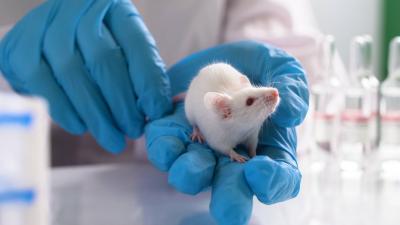Do the 3Rs Help Bring About More Successful, Humane Biomedical Research? Or Do We Need Something Better?

New paper by Jarrod Bailey, PhD, director of medical research at the Physicians Committee, argues that a significant change is necessary to help animals and patients.
The 3Rs are principles of humane biomedical experimental technique that have been accepted around the world since the 1990s, after being introduced in 1959. They are intended to ensure that research involving animals is as humane as possible, by “refining, reducing, and replacing” animal research at every opportunity. A new research paper by Dr. Bailey looks at the views of scientists who question the past and present value and impact of this approach, and who, perhaps more importantly, have argued for something more appropriate in its place as biomedical research moves in a new direction.
The paper summarises evidence that points towards a strong case for change, and what form this change could take. The 3Rs should have resulted in strong protections for animals in laboratories, a robust and stringent framework for the approval—and rejection—of proposed animal research programs, and an assurance that the best research methodologies be used for the greatest degree of translation to clinical (human) benefit. No one suggests that the 3Rs have never resulted in any benefits along these lines, but many argue that any such benefits have been relatively scant.
Some have argued that a “new” 3Rs should be conceived and take their place. Others argue that the 3Rs should be replaced by something completely different. Dr. Bailey argues that the simple application of the “Humanity Criterion,” as proposed by Russell and Burch—those who conceived of the 3Rs back in the 1950s—themselves, would go a long way towards being a solution. A focus on human welfare alongside animal welfare would help to ensure optimal human relevance of any proposed research methods and models, accelerating replacement and therefore animal welfare, and providing greater translation to clinical benefits in the form of greater understanding of human diseases with concomitant new, safe, and effective therapies for them.
It is hoped, as biomedical science moves towards an era that will more comprehensively embrace so-called New Approach Methodologies (NAMs), in the form of advanced, patient-derived human cell and tissue cultures, computational methods and more, that refining the use of animals and reducing the numbers of animals used will take a back seat to a focus on replacing animals in scientific research altogether. Dr. Bailey hopes his latest paper will encourage wider discussions and policy changes, among those who have the power to encourage and facilitate superior, and humane, animal-free science.







